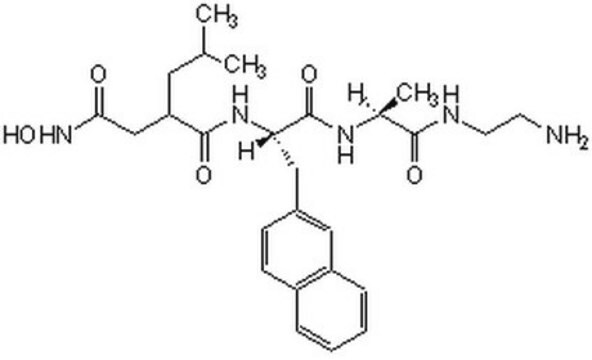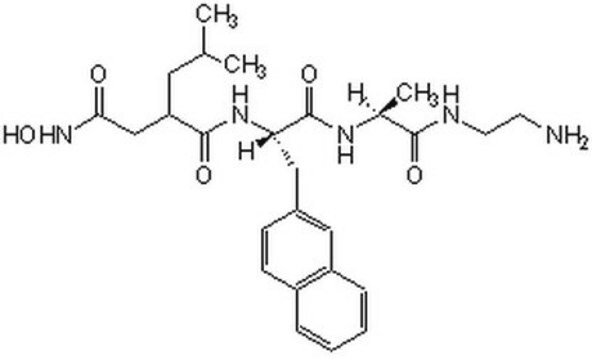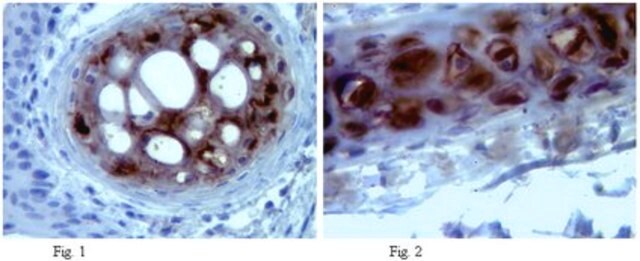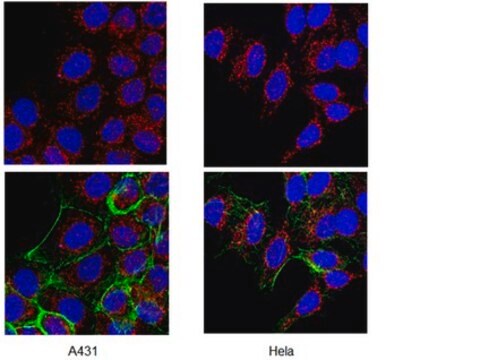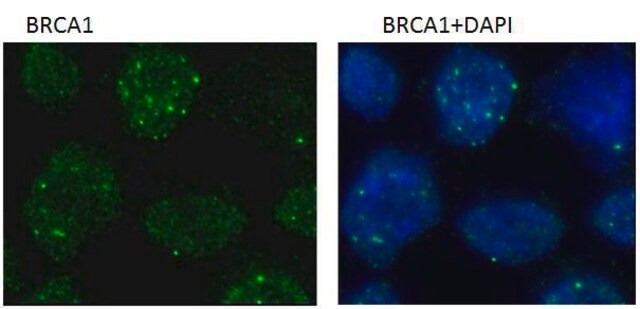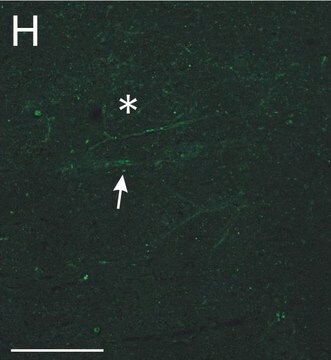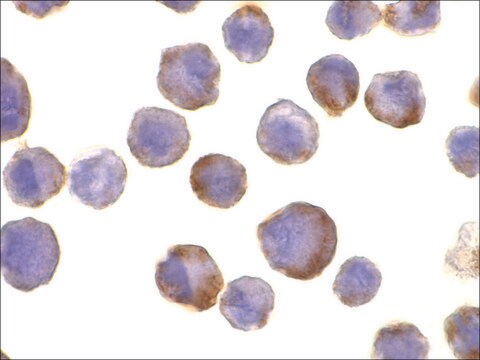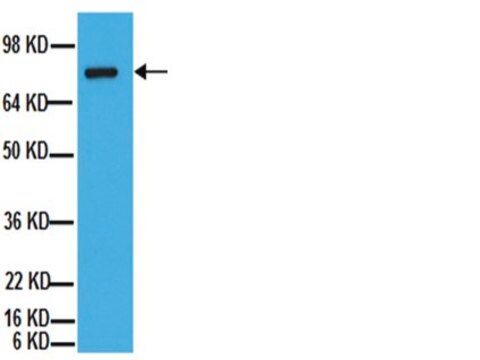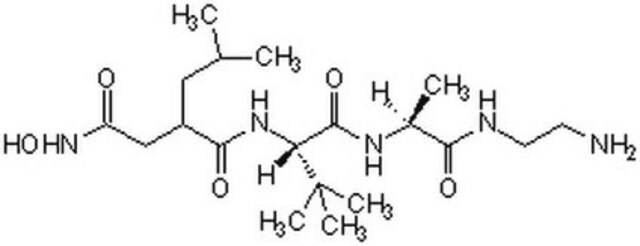MABT884
Anti-TACE Antibody, clone D1(A12)
clone D1(A12), from human(Recombinant)
Synonyme(s) :
Disintegrin and metalloproteinase domain-containing protein 17, ADAM 17, CD156b, Snake venom-like protease, TNF-alpha convertase, TNF-alpha-converting enzyme
About This Item
Produits recommandés
Source biologique
human (Recombinant)
Niveau de qualité
Forme d'anticorps
purified immunoglobulin
Type de produit anticorps
primary antibodies
Clone
D1(A12), monoclonal
Espèces réactives
human
Ne doit pas réagir avec
mouse (Kwok, H.F., et al. (2014). Protein Eng. Des. Sel. 27(6):179-190.)
Technique(s)
flow cytometry: suitable
Isotype
IgG1κ
Numéro d'accès NCBI
Numéro d'accès UniProt
Conditions d'expédition
ambient
Modification post-traductionnelle de la cible
unmodified
Informations sur le gène
human ... ADAM17(6868)
Description générale
Spécificité
Immunogène
Application
Inhibits Activity/Function: Representative lots inhibited TACE-mediated substrates shedding from the surface of human cells both in cultures and in mice in vivo (Issuree, P.D., et al. (2013). J. Clin. Invest. 123(2):928-932; Richards, F.M., et al. (2012). PLoS One. 7(7):e40597; Tape, C.J., et al. (2011). Proc. Natl. Acad. Sci. U. S. A. 108(14):5578-5583).
Apoptosis & Cancer
Qualité
Flow Cytometry Analysis: 0.2 µg (2 µg/mL) of this antibody detected TACE expression on the surface of one million HeLa cells.
Description de la cible
Forme physique
Stockage et stabilité
Handling Recommendations: Upon receipt and prior to removing the cap, centrifuge the vial and gently mix the solution. Aliquot into microcentrifuge tubes and store at -20°C. Avoid repeated freeze/thaw cycles, which may damage IgG and affect product performance.
Autres remarques
Clause de non-responsabilité
Vous ne trouvez pas le bon produit ?
Essayez notre Outil de sélection de produits.
Code de la classe de stockage
12 - Non Combustible Liquids
Classe de danger pour l'eau (WGK)
WGK 2
Point d'éclair (°F)
Not applicable
Point d'éclair (°C)
Not applicable
Certificats d'analyse (COA)
Recherchez un Certificats d'analyse (COA) en saisissant le numéro de lot du produit. Les numéros de lot figurent sur l'étiquette du produit après les mots "Lot" ou "Batch".
Déjà en possession de ce produit ?
Retrouvez la documentation relative aux produits que vous avez récemment achetés dans la Bibliothèque de documents.
Notre équipe de scientifiques dispose d'une expérience dans tous les secteurs de la recherche, notamment en sciences de la vie, science des matériaux, synthèse chimique, chromatographie, analyse et dans de nombreux autres domaines..
Contacter notre Service technique